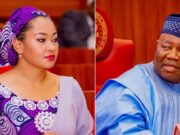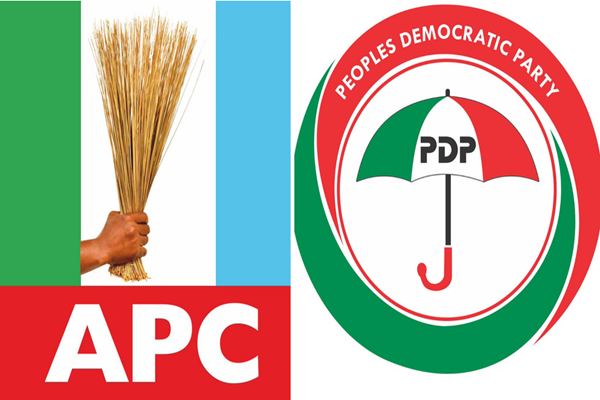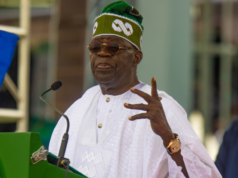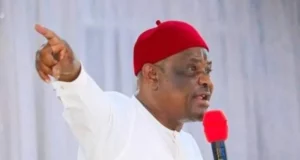As Nigeria’s political terrain begins to shift ahead of the 2027 general elections, indications have emerged that at least three governors from the opposition Peoples Democratic Party (PDP) are on the verge of defecting to the ruling All Progressives Congress (APC) to support President Bola Tinubu’s second-term ambition.
This political realignment, fueled by internal discontent within the PDP and mounting pressure from northern political blocs, suggests a broader plan to bolster Tinubu’s support base in the face of growing uncertainty, particularly from his northern stronghold.
Governor Umo Eno of Akwa Ibom State openly declared support for Tinubu at a public event last Friday, stating that politics in his state has transcended party affiliations, describing the current arrangement as a “unity party.”
Eno’s stance is reportedly a precursor to a broader deployment of the PDP’s political structure in Akwa Ibom to back APC candidates in 2027, including the re-election of Senate President, Godswill Akpabio.
According to sources familiar with the negotiations, Governors Sheriff Oborevwori (Delta), Peter Mbah (Enugu), and the suspended Governor Siminalayi Fubara (Rivers) are also contemplating whether to publicly align with Tinubu’s re-election bid, either from within the PDP or through outright defection.
Governor Eno’s motivations are reportedly tied to securing political survival—both his own and that of his predecessor Udom Emmanuel, who remains under EFCC scrutiny.
Akpabio, acting as a key broker, has pledged to support Eno’s re-election in exchange for his endorsement of Tinubu.
At a recent public lecture at the University of Uyo, Akpabio’s representative praised Eno as the first opposition governor to back Tinubu’s re-election bid, signaling a growing bond between state and federal powers in the South-South.
Governor Oborevwori is said to be awaiting final agreements from APC negotiators before committing. Meanwhile, Fubara’s intended defection was reportedly disrupted by the political turmoil in Rivers State and Tinubu’s dissatisfaction with how he managed the crisis, particularly amid his feud with FCT Minister Nyesom Wike.
For Governor Fubara, political survival and protecting his governorship remain top priorities.
He has distanced himself from PDP governors’ legal efforts to challenge a possible state of emergency, suggesting a quiet attempt to reconcile with APC stakeholders and potentially cross over.
Significantly, all three governors—Eno, Oborevwori, and Fubara—were absent from the last PDP Governors’ Forum meeting in Ibadan.
Their absence is widely seen as symbolic of their gradual disengagement from the opposition party.
Governor Peter Mbah of Enugu is reportedly maintaining close ties with the Presidency and is still considering the political calculus—whether to support Tinubu openly from within the PDP or defect entirely.
As a loyal PDP member, Mbah’s decision could influence the direction of the party in the Southeast and beyond.
The emerging alliance between Tinubu and select PDP governors has rattled the PDP’s leadership.
There are fears that such defections could cripple the party’s chances in the 2027 elections. High-level meetings are being proposed within the PDP to stem the tide and retain strategic members.
However, observers note that the final decisions are not sealed. Some governors are still weighing regional sentiments and political risks.
A potential coalition and emergence of a viable Southern candidate from within the opposition could shift their loyalties again, especially in regions where APC remains unpopular.
In a parallel move to solidify his northern base, President Tinubu is reportedly scheduled to meet this weekend in London with a prominent opposition leader from Kano and a key northern monarch.
Another strategic meeting involving a former president is also in the works, as part of Tinubu’s broader agenda to regain favor in northern Nigeria—where analysts say his standing has weakened since 2023.
The unfolding political maneuvering, spearheaded by Senate President Akpabio and backed by the Presidency, signals a new phase of realignment that could redraw Nigeria’s political map ahead of the 2027 contest.

















